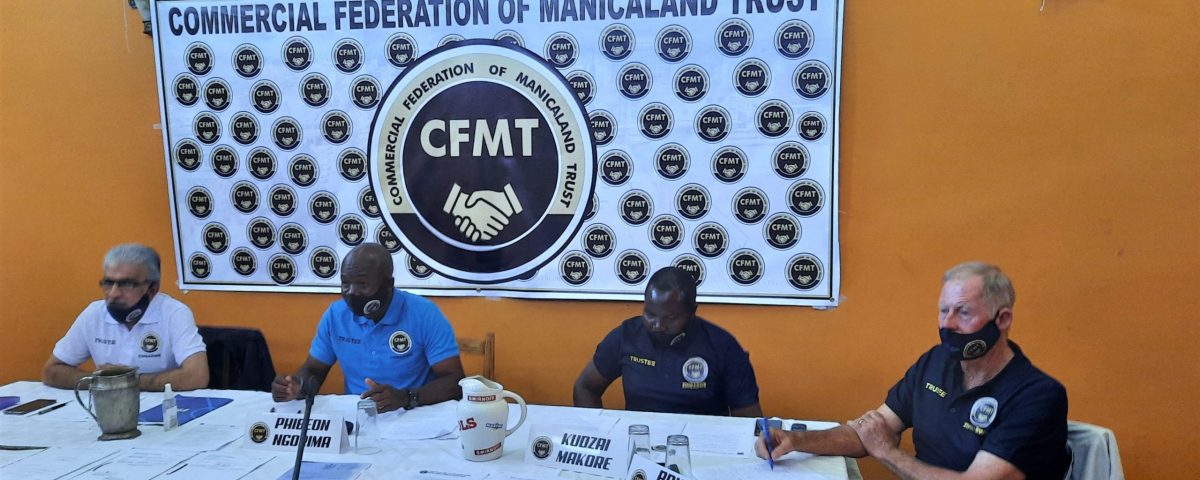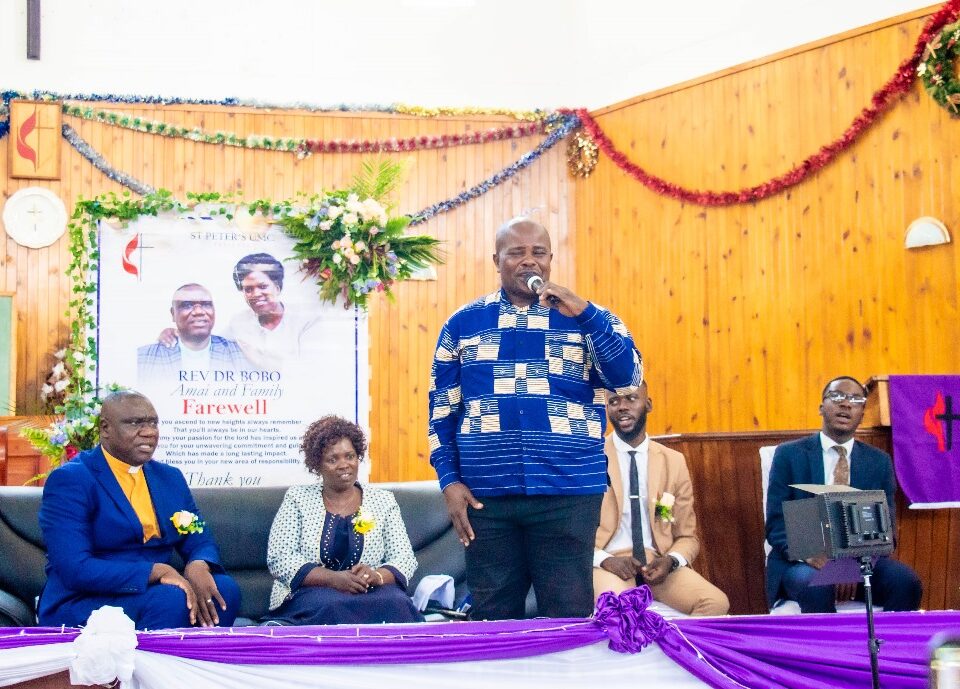
Macheso signs Mutare journalist as new lead dancer
April 1, 2022
New twist in Johanne Marange leader burial saga, after rival brother applies for a prohibitory interdict order
April 20, 2022CFMT appeals to Supreme Court against Mutare High Court judgment

CFMT trustees during a press conference last year after their official launch.
…As it remains determined to strive for constitutionalism precedence in local authorities
Ngoni Dapira
THE Commercial Federation of Manicaland Trust (CFMT) last week Thursday appealed to the Harare Supreme Court against the whole judgment of the Mutare High Court handed down recently on 17 March by Justice Jester Charewa.
The Mutare based civic society organization that represents the interests of commercial and industrial rate payers, had filed a High Court application last year on 15 September through its attorney Chipo Kanengoni of Matsika Legal Practitioners, in which the City of Mutare and Ministry of Local Government, Public Works and National Housing were first and second respondents respectively.
In its High Court application submissions, CFMT demanded for a declaratory order from the City of Mutare that the budget processes adopted in the formulation of both the 2020 supplementary budget and 2021 annual budget were unprocedural and flouted the provisions of section 219 of the Urban Councils Act, [Chapter 29:15]. It also pleaded that the consequent increases from the budget processes and budgets were unaffordable to ratepayers given the covid-19 induced economic turmoil, thus requested for a court order to compel negotiations and consultations on revision of the increments.
However, in its notice of opposition, the City of Mutare, through its lawyer Tinashe Mukwindidza from Bere Brothers Legal Practitioners opposed that when the High court application was first made, the applicant was called the Manicaland Commercial Federation Trust and not CFMT. Mukwindidza therefore argued that the applicant (CFMT) has no locus standi to challenge the budget in issue and pleaded for the application to be dismissed.
The CFMT Deed of Trust presented to the court showed that it was registered on 29 March 2021 at a time when the 2021 budget had already been approved by the 2nd Respondent. Mukwindidzi thus argued that the Manicaland Commercial Federation Trust that was a nonentity.
Having taken note of the anomaly during the pre-trial hearings, CFMT on October 28 last year filed a notice of amendment to substitute the Manicaland Commercial Federation Trust and use the registered CFMT as the applicant.
Nonetheless, on 17 March, Justice Charewa in her ruling dismissed the case on the principle that a non-existent applicant cannot validly institute legal proceedings and the consequence was that the application filed on 15 September 2021 was not valid.
“Consequently, I find that this application is without merit and should be dismissed. And in view of the finding the HC183/21 is a nullity which cannot be amended, I find it unnecessary to delve into its merits,” read her judgment.

Mutare High Court
Explaining her ruling Justice Charewa said it is trite that an application stands or falls by the papers filed of record. “The second principle is that if a party did not exist as at the time of commencement of litigation, such process is null and void. It is common cause that Manicaland Commercial Federation Trust does not exist. It did not exist on 15 September 2021 and could therefore not have commenced any litigation or passed any resolutions or granted anyone any authority to act on its behalf.”
On the notice of amendment made on October 28, Justice Charewa said it was not considered because the final principal distilled from case law is that one cannot amend a nullity. “The follow on principle is that if a party does not exist, it cannot be substituted ergo, the current application for leave to amend HC 183/21 to substitute the trustees Commercial Federation of Manicaland Trust for the trustees Manicaland Commercial Federation Trust, is not sustainable,” read her ruling.
In its grounds of appeal to the Supreme Court, CFMT cited six concerns that it claimed the Court erred at law. The first, was the finding that their case was one of a non-existent person, instead of one of miscitation of the name of an existing legal person, which was capable of amendment. The second, appealed against the misdescription of their case number HC 183/21, rendering the proceedings a nullity incapable of amendment when it was apparent that it was a misdescription capable of amendment. The third was the finding that the applicant had no standing to seek the amendment of the proceedings case number HC 183/21 when it was party to the matter.
The fourth was on the finding that a misdescription of the rule upon which an application is based was fatal to the application even though no prejudice was suffered by the respondents. The fifth was against the handing down judgment on one matter, HC 183/21, when the hearing was on two matters, HC 268/21 and HC 183/21. The sixth and last appeal was against the granting of an order for costs on a higher scale against them, regardless of them having sumitted a merited application and conducted themselves in a legitimate manner.
CFMT further requested for its Supreme Court appeal to be allowed with costs of suit and for an allowance to amendment of its citation under application case number 183/21 to read as ‘The Trustees Commercial Federation of Manicaland Trust,’ on all pleadings and documents.
In some instances the permission of the High Court to appeal is required before the case can be taken on appeal to the Supreme Court, however in this case the applicants used Section 44 of the High Court Act, 1981 which states that, “Where the High Court refuses to grant leave to appeal, the appellant is entitled to apply to a Supreme Court judge for leave to appeal.”


